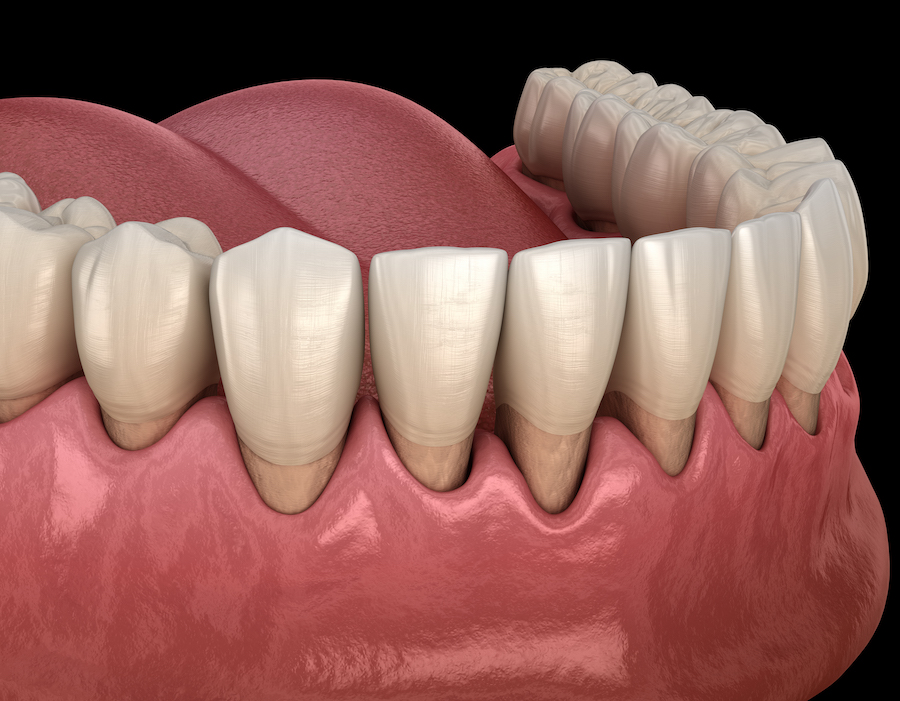
What Are the Stages of Gum Disease?
March 4, 2024 9:00 amGum disease, also known as periodontal disease, is the most common cause of tooth loss among adults. The common dental condition affects the gums and supporting structures of the teeth. Worried about gum disease? Keep reading as we explain the different stages of gum disease to help you keep an eye on your oral health.
Gingivitis
Gingivitis is the initial stage of gum disease. It is often characterized by inflammation of the gums caused by bacterial plaque that builds up on the teeth’s surfaces. Symptoms may include redness, swelling, bad breath, and bleeding gums, especially during brushing or flossing. With a heightened focus on brushing, flossing, and consistent dental visits, it is possible to reverse this stage.
Early Periodontitis
If gingivitis is left untreated, it can progress to early periodontitis. During this stage, the inflammation spreads below the gumline, causing pockets to form between the gums and teeth. These pockets can trap food debris and bacteria, leading to further infection, bad breath, and damage to the supporting bone.
Moderate Periodontitis
As the disease advances, the pockets between the gums and the teeth deepen, and the supporting bone continues to deteriorate. At this point, gums may recede, and teeth may become loose or shift position. Moderate periodontitis requires more aggressive treatment, such as deep cleaning procedures called scaling and root planing, to remove plaque and tartar buildup from below the gums.
Advanced Periodontitis
In the final stage of periodontal disease, the damage to the bone and tissues is severe. Teeth may become severely loose or even fall out, and there may be noticeable changes in the bite or alignment of the teeth. Advanced periodontitis is serious and often requires more extensive treatments, such as gum surgery or tooth extraction, to restore oral health.
How to Prevent Gum Disease
Prevention and early detection are key to maintaining healthy gums and preventing the progression of gum disease. Gum disease will progress without intervention. The best intervention includes practicing good oral hygiene habits, such as brushing twice a day, flossing daily, and scheduling regular dental check-ups.
If you notice any signs or symptoms of gum disease, such as bleeding gums or persistent bad breath, don’t hesitate to schedule a dental visit.
Schedule an Exam & Cleaning in Beaufort, SC
Worried about your gums? Want to take a proactive step in preventing gum disease? Contact Beaufort Center for Dentistry! By scheduling an exam and cleaning, you can take a proactive step to protect your oral health and enjoy a beautiful smile for years to come.
Categorised in: Oral Health



